An astonishing new science called neuroplasticity is overthrowing the centuries-old notion that the human brain is immutable. Psychiatrist and psychoanalyst Norman Doidge, travelled around the US to meet both the brilliant scientists championing neuroplasticity and the people whose lives they’ve transformed – people whose mental limitations or brain damage were seen as unalterable. We see a woman born with half a brain that rewired itself to work as a whole, blind people who learn to see, learning disorders cured, IQs raised, aging brains rejuvenated, stroke patients learning to speak, children with cerebral palsy learning to move with more grace, depression and anxiety disorders successfully treated, and lifelong character traits changed. Using these marvellous stories to probe mysteries of the body, emotion, love, sex, culture, and education, Dr. Doidge has written an immensely moving, inspiring book that will permanently alter the way we look at our brains, human nature, and human potential.
The Brain That Changes Itself
KSh 1,095.00
An astonishing new science called neuroplasticity is overthrowing the centuries-old notion that the human brain is immutable. Psychiatrist and psychoanalyst Norman Doidge, travelled around the US to meet both the brilliant scientists championing neuroplasticity and the people whose lives they’ve transformed – people whose mental limitations or brain damage were seen as unalterable. We see a woman born with half a brain that rewired itself to work as a whole, blind people who learn to see, learning disorders cured, IQs raised, aging brains rejuvenated, stroke patients learning to speak, children with cerebral palsy learning to move with more grace, depression and anxiety disorders successfully treated, and lifelong character traits changed. Using these marvellous stories to probe mysteries of the body, emotion, love, sex, culture, and education, Dr. Doidge has written an immensely moving, inspiring book that will permanently alter the way we look at our brains, human nature, and human potential.
1 in stock
Related products
-
Robbins & Kumar Basic Pathology. International Edition, 11th Edition
KSh 9,500.00Readable, well-illustrated, and concise, Robbins and Kumar Basic Pathology, 11th Edition, offers today’s busy students a rich understanding of all essential pathology concepts from trusted names in the field. This updated edition thoroughly covers key pathologic processes and the time-honored tools of gross and microscopic analysis, while also retaining a strong emphasis on clinicopathologic correlations and the impact of molecular pathology on the practice of medicine. Outstanding artwork and schematic drawings, as well as a robust eBook experience with extensive additional features, make complex concepts easier to learn and retain.
Key Features-
- Includes fully updated clinical topics throughout.
-
- Features high-quality photomicrographs, gross photos, and radiologic images, as well as new artwork and over 150 new schematic diagrams that help summarize key or complex disease mechanisms.
-
- Contains a new Rapid Review section that uses bulleted summary boxes to deliver essential take-home messages and help you focus on the fundamentals.
-
- Includes tables of relevant laboratory tests for each chapter that link pathophysiology of disease and diagnostic testing.
- Highlights pathogenesis, morphology, and pathophysiologic content throughout.
- Features increased representation of diverse populations throughout the text, including clinical photographs of skin lesions in multiple skin types and a new section on the role of socially defined race in health disparities.
Author InformationEdited by Vinay Kumar, MBBS, MD, FRCPath, Professor and Chairman, Department of Pathology, University of Chicago, Pritzker School of Medicine, Chicago, IL, USA; Abul K. Abbas, MBBS, Emeritus Professor, Department of Pathology, University of California San Francisco, USA; Jon C. Aster, MD, PhD, Professor, Department of Pathology, Harvard Medical School; Brigham and Women’s Hospital, Boston, Massachusetts, USA and Andrea T Deyrup, M.D., Ph.D., Associate Professor Department of Pathology Duke University Medical Center -
-
The Behavioral Health Specialist in Primary Care: Skills for Integrated Practice
KSh 12,600.00Patients with chronic conditions often need psychosocial support and brief counseling to help them make the lifestyle and behavioral changes required to prevent disease complications. This innovative text, with contributions from respected clinicians and researchers in all arenas of behavioral health, provides comprehensive training for all health professionalsóincluding those in medicine, nursing, social work, mental health, and clinical and health psychologyówho desire targeted evidence-based training in behavioral health skills. Rich case examples drawn from typical patient presentations demonstrate the relationship between physical and psychological health and the complexity of behavioral change in chronic illness.
This text is a timely, relevant, and practical resource for all members of the primary care team. It prepares team members to work in the model of patient-centered integrated care in accordance with the recommendations of the Affordable Care Act (ACA) and the National Committee for Quality Assurance (NCQA) medical home standards for identifying patient needs and providing coordinated and comprehensive patient care. The book focuses on knowledge and skills needed for working with the most common chronic conditions such as diabetes, obesity, chronic pain, cardiovascular conditions, sleep disorders, geriatric conditions, cancer-related conditions, and substance abuse. It includes chapters on epidemiological trends in chronic illness and systems medicine. Theories of health behavior and behavioral change and evidence-based interventions provide a foundation for skill development, followed by detailed coverage of the requirements for behavioral management of specific chronic conditions. Sample referrals and consultation notes provide concrete examples of how the behavioral health specialist might respond to a referral.
KEY FEATURES:
- Provides comprehensive graduate-level training for the role of Behavioral Health Specialist
- Describes the health promotion and counseling skills needed to function as part of an integrated health team
- Focuses on proficiencies needed for working with common chronic conditions
- Addresses the psychosocial components of primary care disorders
- Includes case examples demonstrating the relationship between physical and psychological health and the complexity of behavioral change in chronic illness
-
Kanski’s Clinical Ophthalmology A Systematic Approach
KSh 24,646.00Through eight outstanding editions, Kanski’s Clinical Ophthalmology has been the classic specialty textbook, providing the perfect ophthalmology foundation for trainees and a valuable reference source for experienced practitioners. Building on the previous edition by Dr. Brad Bowling, Dr. John Salmon from Oxford University has comprehensively revised the textbook. The 9th Edition retains Dr. Kanski’s highly effective format of succinct text and visually dynamic presentation, providing authoritative, focused guidance on the diagnosis and management of ophthalmic disorders. Extremely well organized and comprehensive in scope, this visually stunning book reflects the latest advances in the field, facilitating quick comprehension to enhance learning, aid exam preparation and guide clinical practice. As a general ophthalmic textbook, this is the gold standard.
-
Wong’s Nursing Care of Infants and Children 11th Edition
KSh 9,660.00Wong’s Nursing Care of Infants and Children, 11th Edition takes a unique, easy-to-follow developmental approach to describe the care of children at each age and stage of development. This longtime bestseller provides an evidence-based, clinical perspective that shows how the quality of nursing care can impact quality patient outcomes. Childhood diseases and disorders are organized by age groups and body systems and explained through the nursing process framework. This edition features completely updated and reorganized chapters that present content in a clear, easy-to-understand way. New Quality Indicator boxes paint a bigger picture of hospitals and how they look at quality and safety.
- A focus on family-centered care emphasizes the role and influence of the family in health and illness with a separate chapter and Family-Centered Care boxes.
- Emergency Treatment boxes serve as a quick reference in critical situations.
- Pathophysiology Reviews explain complicated disease processes with illustrated summary boxes.
- Quality Patient Outcomes are discussed for major childhood diseases and disorders, showing how nursing care directly impacts patient outcomes.
- Nursing Tips include helpful hints and practical, clinical information.
- Critical Thinking Case Studies help you test and develop your own analytical skills.
- Cultural Considerations provide cultural tips from clinical experts.
- Nursing Care Plans provide models for planning patient care, with rationales explaining why specific nursing interventions have been chosen, and include nursing diagnoses, patient/family goals, nursing interventions/rationales, expected outcomes, and NIC and NOC guidelines.
- Nursing Care Guidelines offer clear, step-by-step, detailed instructions on performing specific skills or procedures.
- Translating Evidence into Practice and Applying Evidence to Practice boxes help you apply research to support, guide, and improve the outcomes of nursing care.
- Atraumatic Care boxes contain techniques for care that minimize pain, discomfort, or stress, and provide guidance for performing procedures in a caring manner.
- Community and Home Health Considerations boxes focus on wellness information and illness-related topics.
- Drug Alerts highlight important drug-related information for safe, appropriate care.
- Nursing Alerts provides critical information that must be considered in providing care.
- Research Focus boxes emphasize research with concise reviews of important evidence.
- Nursing Alerts provides critical information that must be considered in providing care.
-
Modern Blood Banking & Transfusion Practices
KSh 12,460.00ASCP requirement.“To pass the ASCP and become a licensed medical lab tech, this text is the ultimate blood bank source for the required classes.”—Amazon Reviewer
Great resource for anyone in a Medical Technology or Medical Laboratory Science Program!I would highly recommend this book!”—Mary L., Amazon Reviewer
“Amazing legendary book in the field. Helpful for practicing Transfusion Medicine and Hematology.” —Zubair S., Amazon Reviewer
Join the generations of students who have embarked on successful careers with a firm foundation in the theory and practice of blood banking and transfusion practices. Denise Harmening’s classic text teaches you not only how to perform must-know tests and tasks, but to understand the scientific principles behind them.
You’ll begin with a review of the basic concepts of red blood cell and platelet preservation, genetics, immunology, and molecular biology. Then you’ll move to the hows and whys of clinical practice. And, you’ll be prepared for new advances in the field.
-
An Introduction to Forensic Genetics 1st Edition
KSh 12,600.00An Introduction to Forensic Genetics is a comprehensive introduction to this fast moving area from the collection of evidence at the scene of a crime to the presentation of that evidence in a legal context. The last few years have seen significant advances in the subject and the development and application of genetics has revolutionised forensic science.
This book begins with the key concepts needed to fully appreciate the subject and moves on to examine the latest developments in the field, illustrated throughout with references to relevant casework. In addition to the technology involved in generating a DNA profile, the underlying population biology and statistical interpretation are also covered. The evaluation and presentation of DNA evidence in court is discussed as well with guidance on the evaluation process and how court reports and statements should be presented.
- An accessible introduction to Forensic Genetics from the collection of evidence to the presentation of that evidence in a legal context
- Includes case studies to enhance student understanding
- Includes the latest developments in the field focusing on the technology used today and that which is likely to be used in the future
- Accessible treatment of population biology and statistics associated with forensic evidence
This book offers undergraduate students of Forensic Science an accessible approach to the subject that will have direct relevance to their courses. An Introduction to Forensic Genetics is also an invaluable resource for postgraduates and practising forensic scientists looking for a good introduction to the field.
-
Basic Life Support Provider Manual – A Comprehensive Guide Covering the Latest Guidelines (Bls, ACLS and Pals)
Comprehensive Basic Life Support Provider Manual covering the latest BLS, ACLS, and PALS guidelines. Perfect for healthcare professionals and students preparing for certification.
Are you looking to get your BLS / CPR certification? This concise, and easy-to-understand manual has been created by doctors at Medical Creations and complies with the latest 2020 guidelines released by the American Heart Association (AHA). These guidelines are updated every five years. You will find questions at the end of each chapter so that you can test your knowledge and see if you remember everything. Most people pass the BLS course if they correctly answer the questions in this manual. The answers are located at the back of the book.
This book is designed for everyone aiming to undergo BLS / CPR training. It seeks to establish a sound understanding of the principles of BLS and the latest guidelines. All the protocols illustrated here are based on up-to-date evidence.
Basic Life Support (BLS) refers to a set of procedures that can be learned to prolong survival in life-threatening situations until more professional help is available. Any individual can become certified in basic life support protocols. However, these protocols are frequently updated based on the latest evidence available, and every individual who undergoes BLS certification may need to refresh their knowledge every two years.
Medical professionals usually have a sound understanding of basic life support protocols. However, even then, it is essential for them to frequently undergo certifications to update their knowledge regarding the latest evidence-based protocols. This handbook is designed for both medical professionals and non-healthcare individuals. It aims to establish a sound understanding of the mechanisms underlying basic life support.
Thanks to this book, you will:
- ..Have a clear understanding of the principles of BLS and the latest guidelines
- ..Be able to take the BLS course
- ..See if you remember everything thanks to the questions after each chapter
-
communicable diseases
KSh 3,000.00This manual covers the full range of communicable diseases in the African region: skin infections, malaria and other vector-borne diseases.

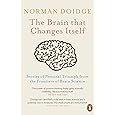

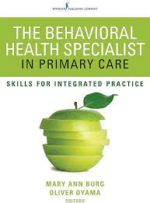
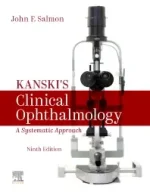



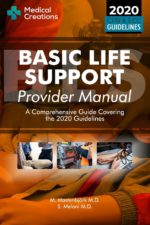
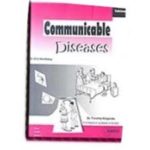
Be the first to review “The Brain That Changes Itself”